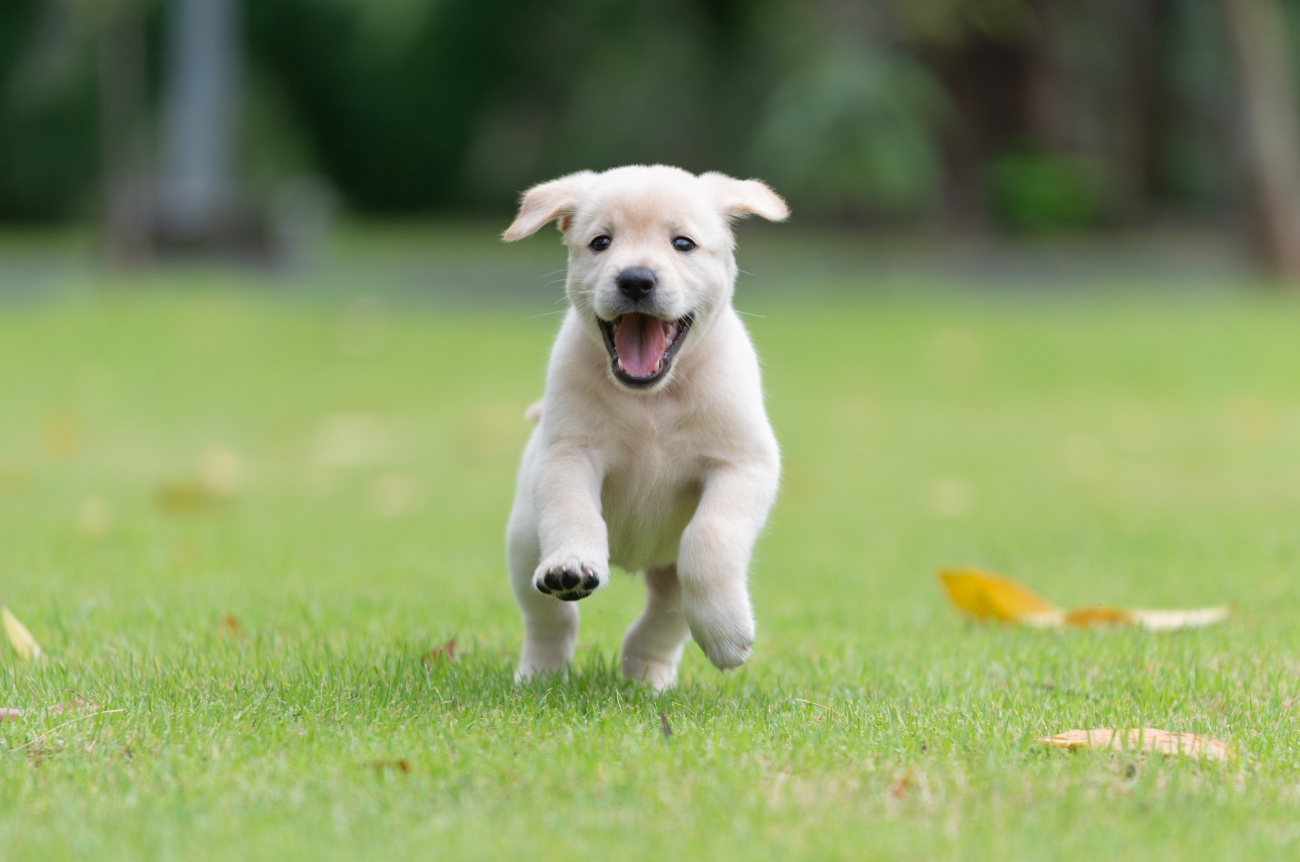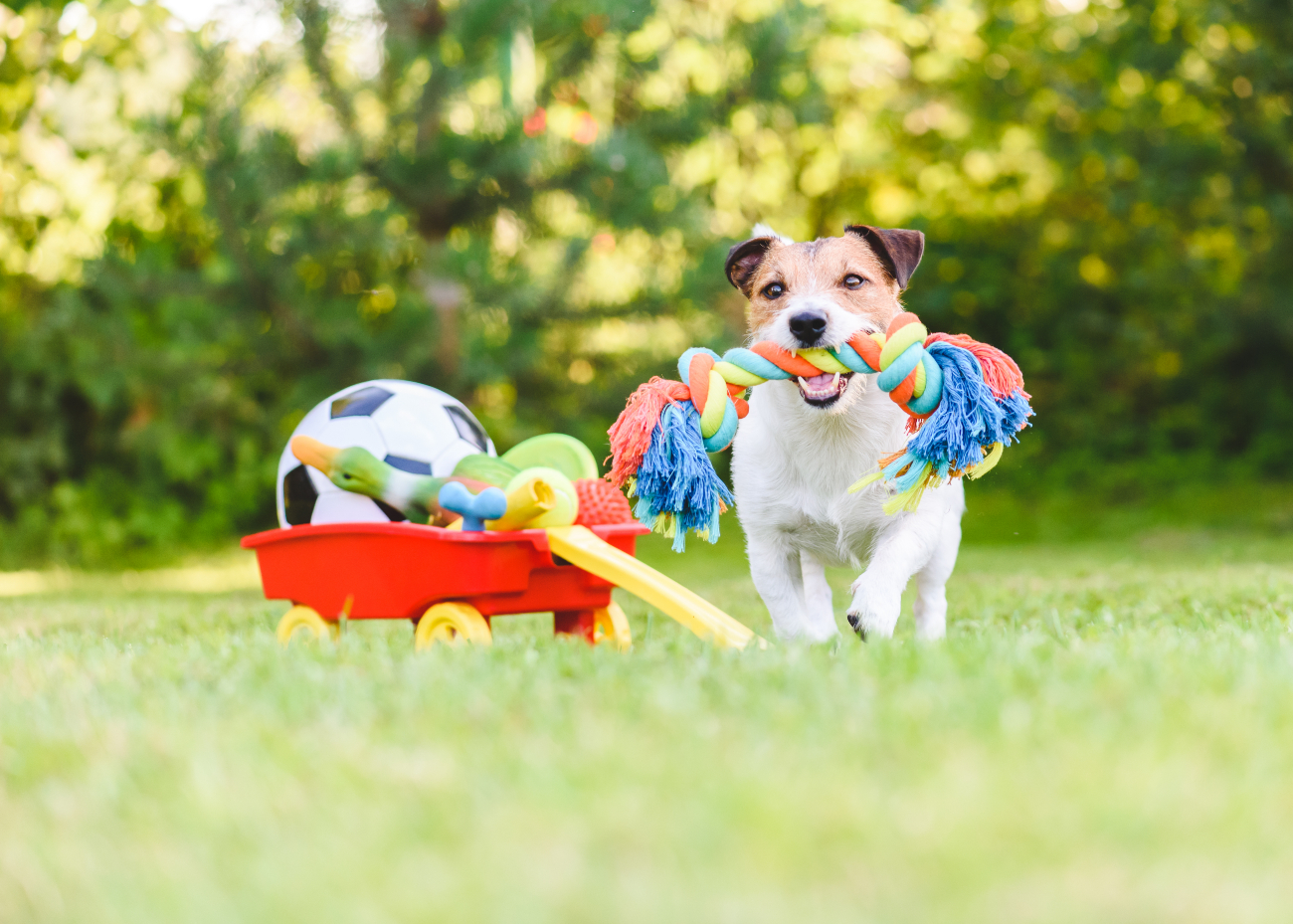When do puppies lose their teeth?
4th June, 2024

Curious about when puppies lose their teeth? It's a natural part of their growth process. As a puppy parent, understanding this milestone is key to their care.
Puppies, like humans, have baby teeth that eventually fall out to make way for their permanent adult teeth. This transition usually starts around three to four months of age. During this time, you may notice your furry friend chewing more and experiencing some discomfort.
Providing appropriate chew toys and monitoring their dental health is crucial. Stay informed about the teething process to ensure your puppy grows up with a healthy, happy smile.
Key takeaways
- Puppy teething typically starts at 3-4 months and shedding of puppy teeth begins at 4-6 months.
- Signs of teething in puppies include increased chewing behaviour, drooling, irritability, and swollen gums.
- Teething discomfort and behaviours include sore and itchy gums, chewing to relieve pressure, and drooling to ease discomfort.
- To soothe teething puppies, offer chewing toys, cold teething treats, and frozen washcloths while ensuring safety with vet-approved items.
Puppy teething timeline
During this stage, your puppy will go through a teething timeline that typically spans from 3 to 7 months of age. Understanding the teething milestones and growth stages is crucial for effective pain management during this period.
The teething schedule is divided into two main phases: the first phase involves the eruption of the incisors at around 3 to 4 months, followed by the canines and premolars at 4 to 6 months.
The second phase sees the shedding of the remaining puppy teeth, to make room for their permanent teeth, usually starting around 4 to 6 months and completing by 6 to 7 months. To learn more about how many teeth a dog has, check out our canine dental guide for more information.
Proper pain management during these stages is essential. Providing appropriate teething toys, which are specifically designed to soothe the gums and alleviate discomfort, can be beneficial. Understanding the growth stages and being prepared for the teething process will help you support your puppy effectively during this time.
Transitioning into the subsequent section about signs of teething in puppies, it's essential to be aware of the cues that indicate your puppy is going through this natural developmental phase.
Signs of teething in puppies
Wondering how to recognise signs of teething in your puppy as they go through this natural developmental phase? During the teething stages, puppies may exhibit various behavioural changes that can give you clues about their discomfort.
Some common signs of teething in puppies include:
- Increased chewing behaviour
- Drooling
- Irritability
- Swollen gums
Understanding these signals can help you provide appropriate care and support to your furry friend during this challenging time.
To help soothe your teething puppy, consider offering teething toys specifically designed to relieve their discomfort. Employing gentle soothing techniques like gently massaging their gums with a clean finger or providing frozen washcloths for them to chew on can help alleviate some of the pain associated with teething.
Remember, patience and understanding are key when dealing with a teething puppy.
| Teething signs | Teething toys |
| Increased chewing | Teething toys |
| Drooling | Gentle gum massage |
| Irritability | Frozen washcloths |
| Swollen gums | Patience and understanding |
Teething discomfort and behaviours
If your puppy is experiencing teething discomfort, they may exhibit behaviours such as increased chewing and drooling. Teething stages can be uncomfortable for puppies, much like when human babies go through the teething process.
During this time, your puppy dog's mouth and gums may be sore and itchy as their baby teeth loosen and adult teeth come in. This discomfort can lead to behaviours like chewing on objects to relieve the pressure and discomfort. Drooling is also common as your puppy's mouth produces more saliva to help ease the discomfort.
To address these teething behaviours and alleviate your puppy's discomfort, there are several solutions you can try. Providing appropriate chew toys can help satisfy their urge to chew while also soothing their gums.
You can also try freezing a wet washcloth for them to chew on or offering frozen treats specially designed for teething puppies. Remember to supervise your puppy while they're chewing and ensure they're using safe and vet-approved items to chew on.
How to soothe teething puppies
If your puppy is teething, consider offering them chewing toys to help ease the discomfort.
Cold teething treats can also provide relief and soothe their gums.
Chewing toys for relief
To help soothe teething puppies, you should provide them with a variety of appropriate chewing toys. Teething relief is crucial during this stage to redirect their chewing habits from furniture or shoes.
Look for toys specifically designed for teething puppies, such as rubber toys or textured chew bones. These toys can help massage their gums and provide relief from the discomfort of teething.
It's essential to supervise your puppy while they chew to ensure they're safe and not ingesting any small pieces. By offering your dog a selection of suitable toys, you can encourage healthy chewing behaviours and alleviate their teething discomfort before moving on to introducing cold teething treats.
Cold teething treats
For soothing teething puppies, provide them with cold teething treats to help alleviate their discomfort. Frozen treats like frozen carrots or ice cubes can provide relief to your teething pup. The cold temperature helps numb their gums, reducing the pain and inflammation caused by teething.
You can also try freezing a wet washcloth for your puppy to chew on; the texture can help soothe their sore gums. Remember to supervise your puppy while they enjoy these frozen treats to prevent any potential choking hazards. These simple teething remedies can make a big difference in helping your puppy feel more comfortable during this challenging time.
Now, let's explore when a puppy's baby teeth typically fall out.
When do puppy teeth fall out?
Wondering when your puppy's teeth will start falling out?
The teething process in puppies typically begins around 3 to 4 months of age.
During this time, you might notice signs of teething issues and a timeline for losing their baby teeth.
Teething process in puppies
As your puppy grows, their baby teeth will eventually start falling out, indicating the teething process. Typically, the teething schedule in puppies begins around 3 to 6 months of age. During this time, your puppy will go through different growth stages, with their baby teeth gradually making way for the dog's adult teeth.
The process can sometimes cause discomfort or pain for your puppy, leading to increased chewing behaviour to relieve the discomfort. Providing appropriate chew toys can help soothe their gums and prevent them from chewing on inappropriate items.
Timeline for tooth loss
During the teething process in puppies, most of their baby teeth start falling out between the ages of 3 to 6 months. This is when adult teeth, which have been developing beneath the gums, begin to emerge in place of the baby teeth.
The process of tooth eruption is essential for puppies as they transition from their temporary set of teeth to their permanent ones. As the adult teeth push through the gums, it's common for puppies to experience discomfort and a strong urge to chew on things to alleviate the pain.
Understanding the timeline for tooth loss can help you anticipate when your puppy will go through this natural phase of growth and development. Moving forward, let's delve into the signs of teething issues that you should watch out for.
Signs of teething issues
To identify signs of teething issues in your puppy, observe for excessive chewing and drooling. Teething stages in puppies typically start around 3 to 6 weeks of age and can last until they are about 6 months old. During this time, you may notice your puppy's teeth becoming loose and eventually falling out.
Common puppy teething symptoms include increased chewing on objects, drooling more than usual, swollen gums, and even some bleeding when the teeth start to fall out. To help alleviate your puppy's discomfort during this stage, provide appropriate teething toys, frozen washcloths, or special treats designed to soothe their gums.
Remember to always consult your veterinarian for additional teething remedies and tips.
| Signs of teething issues | Description |
| Excessive chewing | Puppy chews on newspapers, shoes, rocks, water bottles etc |
| Increased drooling | More saliva than usual |
| Swollen gums | Gums appear puffy |
| Bleeding gums | Some blood when teeth fall |
Dental care for growing puppies
To properly care for your growing puppy's teeth, start by establishing a routine dental hygiene regimen. This is crucial for their overall health and well-being. Here are some key teething tips to keep in mind:
Provide appropriate chew toys to help soothe their gums and satisfy the urge to chew. Avoid items that could splinter or be swallowed.
Consider freezing a wet washcloth for your puppy to chew on. The cold can help numb the discomfort of teething.
Monitor your puppy closely during the teething phase and be patient with any changes in behaviour like increased chewing or irritability.
Conclusion

As your puppy grows, they'll go through the teething process which can be uncomfortable for them. Just like a child losing their baby teeth, your puppy will also lose their baby teeth to make way for their adult teeth. Remember to provide them with appropriate chew toys and soothing treats to help alleviate their teething discomfort.
Purely Pets dog insurance provides dental cover for accidents only in the first year, and from year 2 onwards illness is included. Your pet will need to have an annual vet’s dental check to stay covered. Routine, elective and preventative treatment is not covered.
Puppy insurance can also provide coverage for veterinary costs in case your puppy gets injured or falls ill. For a puppy insurance quote for your furry friend, you can get a quote through our website. If you would like to talk to one of our puppy insurance agents, you can get in touch with us on 0330 102 5748.
Frequently asked questions
Can teething in puppies cause them to have bad breath?
Teething in puppies can lead to bad breath due to increased saliva production and bacteria buildup. Maintaining good dental hygiene during this time can help alleviate teething pain and prevent unpleasant odours.
Are there any specific toys or treats that can help with teething pain?
Feeling lost on how to help with teething pain? Try teething or chew toys, soothing chews, and natural remedies like frozen treats. These options can provide relief for your puppy and make teething more bearable.
How can I tell if my puppy is experiencing excessive pain during teething?
If your puppy seems excessively uncomfortable during the puppy teething process, watch for signs like excessive drooling, chewing on objects, or inflamed gums. Consult your vet for pain management advice and to ensure your pup is progressing through the teething stages normally.
Is it normal for puppies to lose teeth at different times or speeds?
Yes, it's normal for puppies to lose teeth at different times or speeds. The teething timeline can vary among pups. Tooth loss patterns may differ based on breed and individual development. Keep an eye on any concerns.
Should I be concerned if my puppy's adult teeth are coming in crooked or misaligned?
If your puppy's adult teeth are coming in crooked or misaligned, it's essential to address any orthodontic concerns early. Regular dental care can help prevent issues with crooked or even periodontal disease. Consult your vet for guidance on monitoring and managing your puppy's dental health.
Helpful Pages
Recent Posts

Why do Great Danes bury their heads?
12/03/25
Find out more about Beagles
28/02/25Pet Insurance Quote
- 98% claims paid *
- Claims paid directly to vets
- 24/7 vet video consultations
- Interest free monthly payments


